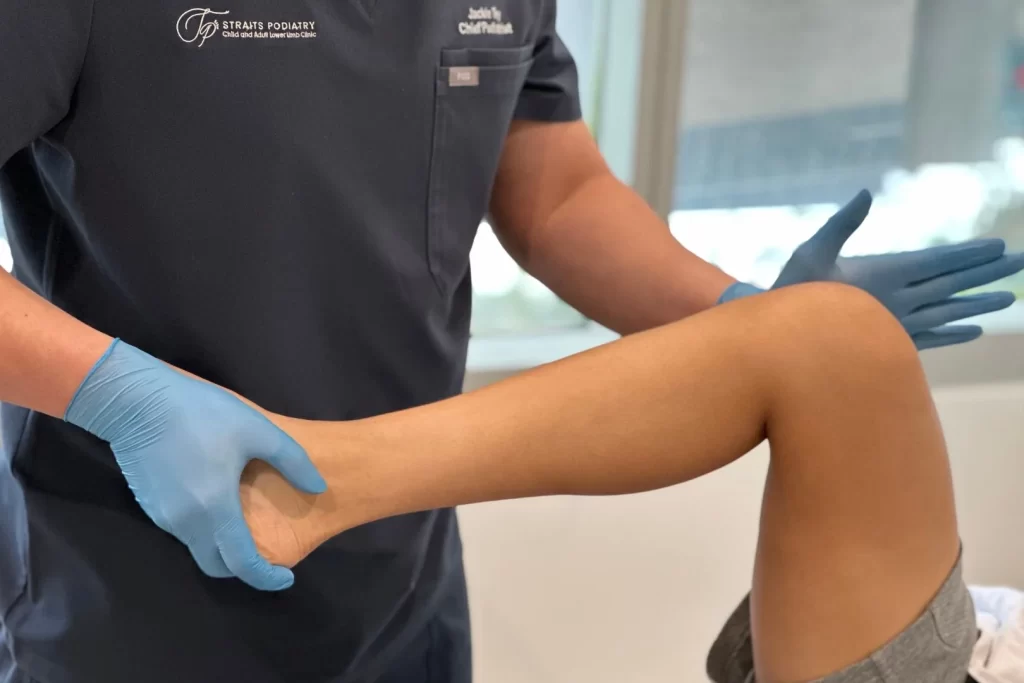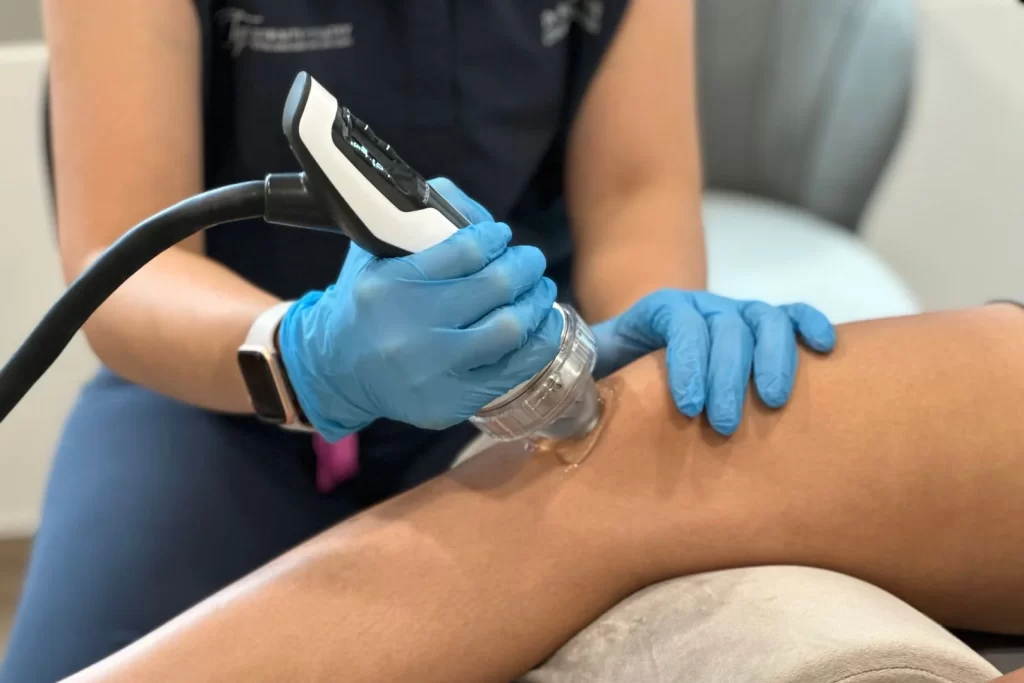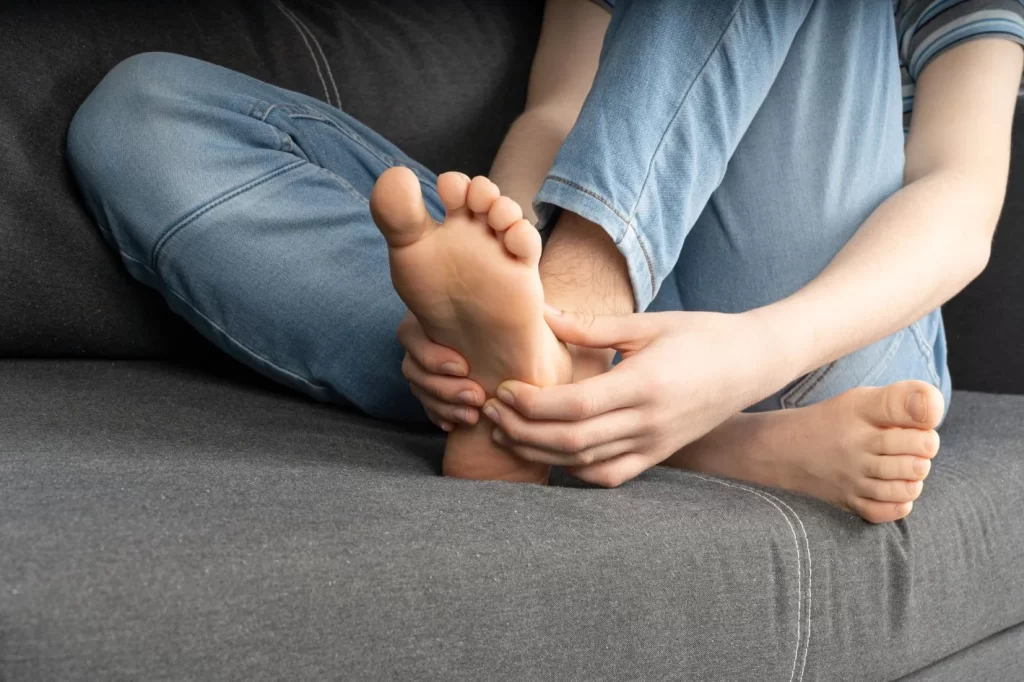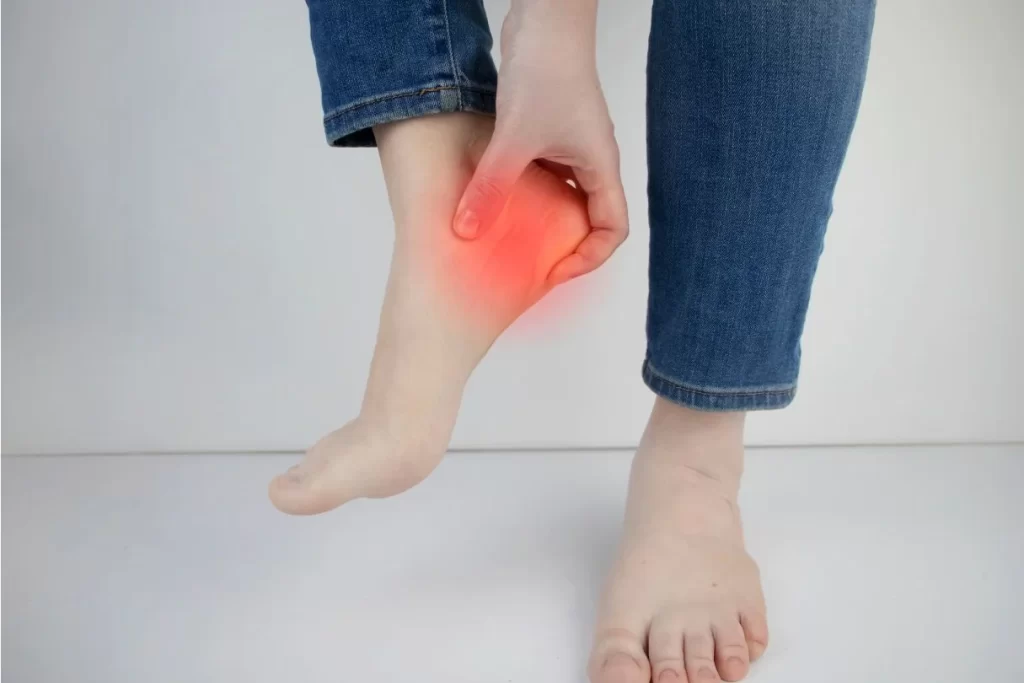Understanding Knee Pain
Knee pain is a prevalent issue in Singapore that affects individuals of all ages, ethnicities, backgrounds, and lifestyles. From professional athletes to office workers navigating daily commutes, knee discomfort can significantly impact one’s quality of life. Finding effective knee pain treatment options is crucial for restoring functions, whether from injury, overuse, or joint degeneration.
Common Conditions and Causes of Knee Pain
Knee ligaments, tendons, and soft tissue injuries:
- Ligament Injuries: There are 4 main ligaments surrounding the knee. They are the anterior cruciate ligament (ACL), posterior cruciate ligament (PCL), medial and lateral collateral ligament (MCL or LCL). Injuries to these ligaments frequently occur during sports or traumatic events. They can result in knee instability, swelling, and difficulty bearing weight on the affected knee.
- Iliotibial Band Syndrome (ITBS): ITBS is an overuse injury that causes pain on the outer aspect of the knee, often seen in runners and cyclists. It occurs when the iliotibial band, a large band of connective tissue fibres that runs along the outer part of the thigh, becomes tight or inflamed, leading to friction and irritation as it passes over the bony prominence of the knee.
- Patellar Tendonitis: Also known as Jumper’s knee, patellar tendonitis is the inflammation and swelling of the patellar tendon (kneecap tendon). It causes pain below the kneecap and is typically associated with jumping sports.
- Bursitis: Bursae are small fluid-filled sacs that reduce pressure and friction between the bones, tendons, and muscles surrounding the knee joint. When these bursae become inflamed, typically due to repetitive stress or overuse, it can lead to bursitis. Symptoms of bursitis include localized pain, swelling, and tenderness around the knee joint.
Structural Injuries within the knee joint:
- Knee Osteoarthritis: A degenerative joint disease resulting from “wear and tear” that can affect the knees. The cartilage within the knee joint becomes thin over time, causing pain, stiffness, and swelling.
- Patellofemoral Pain Syndrome (PFPS): Also known as runner’s knee, which causes pain around or behind the kneecap (patella). It often occurs due to muscle strength imbalances or kneecap malalignment during movements. Activities that involve repetitive knee motion, such as running, jumping, or climbing stairs, can exacerbate PFPS.
- Meniscus Tears: The meniscus is a cartilage structure that absorbs shock in the knee joint. A tear in the meniscus is often due to sudden twisting movements or ageing-related degenerative changes. Meniscus tears usually result in pain, swelling, and limited range of motion, especially when bending or twisting the knee.
Need Help? See Our Podiatrist Today
Types of Knee Pain
- Acute Knee Pain: Pain that typically arises suddenly following a specific injury or traumatic event. Examples include ligament sprains, meniscal tears, or fractures. It is usually intense and causes swelling, bruising, and difficulty walking on the affected knee.
- Chronic Knee Pain: Pain that persists over an extended period, often weeks or months. They can impact your quality of life greatly due to the constant pain. It is often associated with underlying conditions such as osteoarthritis, rheumatoid arthritis, or repetitive strain injuries.
- Mechanical Knee Pain: Often related to structural issues within the knee joint, such as misalignment and instability. Activities that involve repetitive motion or high impact, such as running or squatting, can exacerbate mechanical knee pain. Physical therapy and targeted exercises to improve joint stability and alignment are essential for managing mechanical knee pain.
- Inflammatory Knee Pain: This results from inflammation of the synovial membrane lining the knee joint, causing swelling, warmth, and stiffness. Conditions such as rheumatoid arthritis, gout, or autoimmune disorders can cause inflammatory knee pain.
- Referred Knee Pain: Occurs when the discomfort in the knee originates from another area of the body. Common examples include sciatica, hip joint disorders, or lumbar spine disorders, which can cause pain in the knee region. Referred knee pain will hardly improve if you fail to address the source of the injury.

When Should You See a Knee Specialist in Singapore?
While occasional knee discomfort may resolve with rest, persistent or worsening symptoms warrant evaluation by a knee specialist in Singapore. A knee specialist can thoroughly examine the underlying cause and the treatment plan to manage your pain. Here are some indications that it’s time to seek expert medical attention:
- Severe Pain or Swelling following a direct injury or no apparent cause
- Difficulty bending or straightening your knee, along with stiffness or locking sensations
- Your knee is giving out or unstable, especially during weight-bearing activities or sports.
- Persistent pain during activities
- Individuals with a history of knee injuries, surgeries, or chronic conditions such as osteoarthritis
- Unresolved symptoms despite conservative knee pain treatment such as rest, ice, or over-the-counter pain relief
Knee Pain Treatment Options in Singapore:
- Activity Modification: Temporarily changing activities that exacerbate knee pain can help prevent further injury and promote healing. Consider changing to lower-impact sports or reducing the intensity or frequency of training.
- Physical Therapy: A guided physical therapy program can help improve knee strength, flexibility, and range of motion.
- Shockwave Therapy: Shockwave therapy stimulates the body’s natural process of recovery.
- Orthotics: Custom foot insoles may provide additional structural support and stability, thereby reducing stress on the knee joint during weight-bearing activities.
- Medication: Over-the-counter anti-inflammatory medications may help to reduce pain and inflammation in the knee. However, u should always consult a medical professional before self-medicating.
- Injections: Your healthcare professionals may recommend injection therapies to temporarily relieve pain. They help by reducing inflammation and lubricating the knee joint.
- Surgical Interventions: Severe cases may require surgery. Most knee surgeries are performed arthroscopically (keyhole procedure) to repair damaged tissues. For severe knee arthritis, a knee replacement surgery may be necessary.

Preventing Knee Pain
Some knee pain may be unavoidable due to genetics, age, or previous injuries. However, you can adopt proactive strategies to help reduce the risk of developing injury and maintain optimal knee joint health. Here are some key tips to prevent knee pain:
- Maintain a Healthy Weight: Excess body weight can increase the stress acting on your knee joints. This can cause accelerated wear and tear and a higher risk of developing conditions such as osteoarthritis.
- Strengthen Muscles Around the Knee: Strengthen your quadriceps, hamstrings, and adductors muscle. This can help improve knee stability and reduce the risk of injury.
- Practice Proper Technique: Good technique and body mechanics during physical activity can help prevent unnecessary stress on the knees. Avoid sudden movements, overexertion, and repetitive motions that may increase the risk of injury.
- Warm-Up and Cool Down: Warm up with dynamic stretches and low-impact exercises to improve blood flow and flexibility. Similarly, cool down after activity with static stretches to prevent muscle tightness and the risk of injury.
- Wear Appropriate Footwear: Cushioning shoes and proper arch support can help distribute weight evenly. These shoes can reduce the impact on the knees during walking, running, or other weight-bearing activities. Replace worn-out shoes regularly to ensure optimal support and shock absorption.
- Cross-Train and Mix Up Activities: Avoid overuse injuries by incorporating a variety of low-impact activities into your fitness routine. Cross-training helps balance muscle development and reduces the repetitive stress placed on the knees.
- Learn to Stop: Stop when you experience persistent or worsening discomfort. Avoid activities that aggravate your pain and consult a healthcare professional for evaluation and guidance.
Knee Pain Specialist in Singapore with Straits Podiatry
Share this with someone you know
Frequently Asked Questions
What diagnostic tests may be performed to evaluate knee pain?
Can I manage knee pain without medication?
Is surgery always necessary for knee pain?
Success at Healer is defined by patient satisfaction, effective treatment outcomes, and the overall improvement in community health.
Are there any risks associated with knee pain treatments?
Is it common for knee pain to recur after treatment?
Are there specific exercises I can do to strengthen my knees and prevent injury?
Yes, you can include squats, lunges, leg presses, hamstring curls, and calf raises into your regular fitness routine. However, if you are suffering from knee pain, you should seek guidance from a qualified professional for rehabilitation.
Search
You May Also Like
Do You Have A Question? Ask Us...
Search
Do You Have A Question? Ask Us...
You May Also like
Categories
Categories
- Ankle (4)
- Diabetic Foot (7)
- Feet (5)
- Knee (5)
- Paediatric Lower (5)
- Soft Tissue (3)
- Uncategorized (60)



